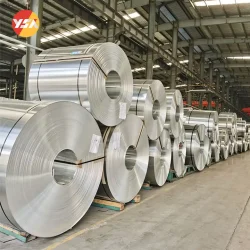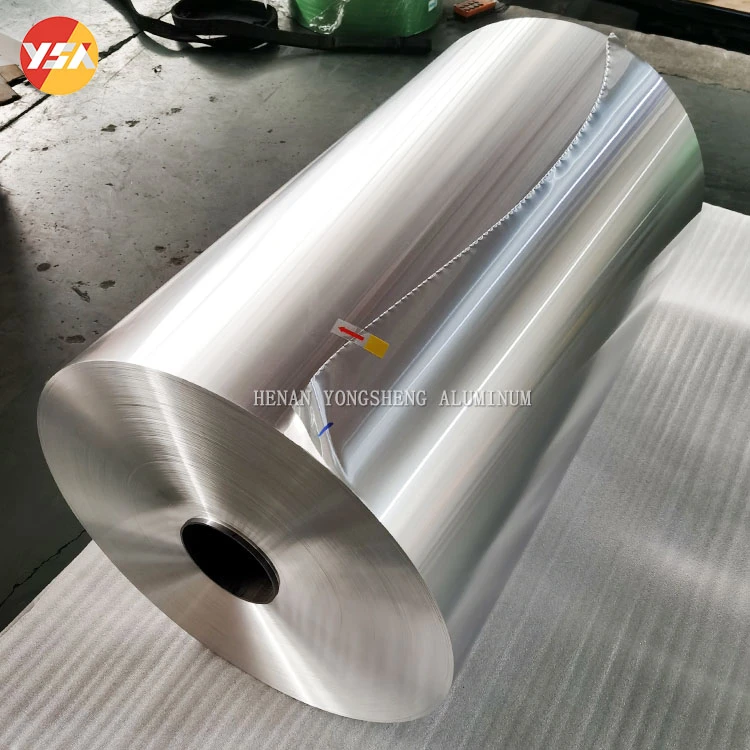
Yongsheng specializing in manufacturing aluminum foil for 27 years. Our aluminum foil has a wide range of applications:
- Aluminum tape
- Energy industry
- Cables transmission line
- Solar concentrator
- Battery
- Aluminum electrolytic capacitor
- Lithium-ion battery
- Transformer
- Air-conditioner fins
- Construction
- Honeycomb Aluminum Foil
Product Detail
Yongsheng Industrial Foil
Thickness: 0.001-0.2mm , Width: up to 2600mm.
Available in all alloys and tempers.
Good thickness consistency. Free sample.
| Series | 1000 Series | 3000 Series | 5000 Series | 8000 Series |
| Alloy | 1050, 1060, 1070, 1100, 1235 | 3003, 3004 | 5052 | 8006, 8011, 8021, 8079 |
| Temper | F, O, H14, H16, H18, H19, H22, H24, H26, H28, T4, T5, T6, T651, T652, T112, T351 etc. | |||
| Thickness | 0.001 mm- 0.2mm | |||
| Width | 10mm-2600mm | |||
| Length | Customization | |||
| Quality Control | Consistent thickness and width, tolerance within standards | |||
Industrial Applications
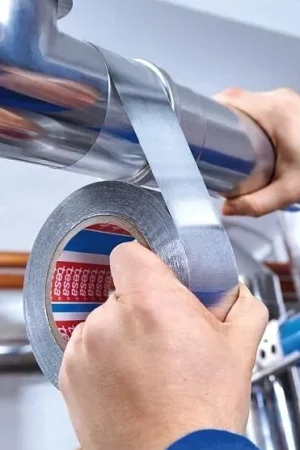
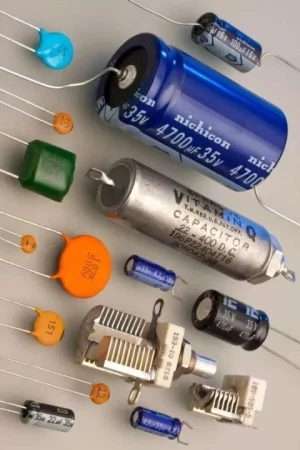

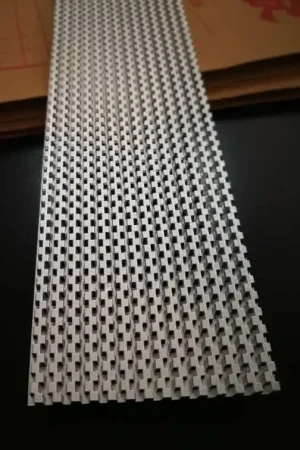
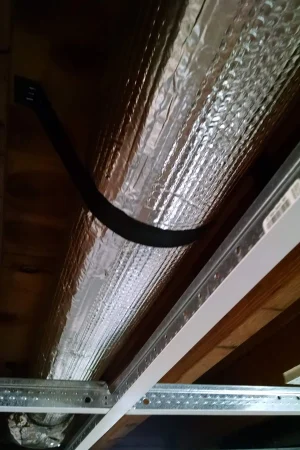
Aluminum Tape
- HVAC& Insulation Systems: Aluminum tape is commonly used in heating, ventilation, and air conditioning (HVAC) insulation systems . It is used to seal and join ductwork components, seal insulation materials. The tape provides an airtight seal, preventing air leaks and improving system efficiency.
- Electrical Wiring: Aluminum tape is used in electrical applications for its conductivity and heat resistance. It can be used to wrap and shield electrical wires, providing protection against electromagnetic interference (EMI) and acting as a heat sink.
- Repair and Maintenance: Aluminum tape is commonly used for repair and maintenance tasks. It can be used to patch or seal damaged surfaces, such as ductwork, pipes, or equipment. It provides a temporary or permanent solution for sealing leaks and preventing further damage.
AC Heat Exchange Fins
Aluminum fins increase the surface area for heat transfer between the refrigerant and the air, facilitating efficient cooling or heating. Aluminum foil’s thermal conductivity, lightweight nature, and corrosion resistance make it well-suited for various air conditioning applications. It improves the performance of air conditioning systems.
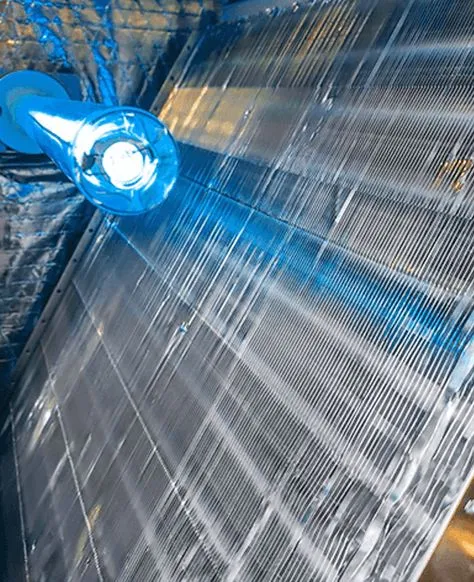
Energy Industry: Aluminum foil’s lightweight, high electrical conductivity and corrosion resistance make it a valuable material in the energy industry, such as cables transmission lines, solar energy, batteries, transformers.
- Cables and Transmission Lines: Aluminum foil is an ideal material for carrying electric current over long distances. It helps to reduce energy losses during transmission and distribution.
- Solar Energy: Aluminum foil plays a crucial role in solar energy applications, including solar concentrators and solar cells. Aluminum foil is used to line the reflective surfaces, maximizing the concentration of sunlight onto the solar receiver. For solar cells, aluminum foil is used as a current collector, allowing efficient extraction of electricity generated by the photovoltaic cells.
- Batteries: In aluminum electrolytic capacitors, aluminum foil acts as the anode, providing a large surface area for energy storage and discharge. In lithium-ion batteries, aluminum foil is used as a current collector and helps in the efficient flow of electrons.
- Transformers: Aluminum foil is used as a winding material due to its excellent electrical conductivity and heat dissipation properties. Aluminum foil windings help in efficient energy transfer and reduce losses in power transformers.

Automotive Industry: Aluminum foil is utilized in automotive radiators, heat insulation, and reflective.
- Automotive Radiators: Aluminum foil helps to enhance the heat dissipation efficiency as a heat conductor, allowing the radiator to cool down the engine coolant.
- Reflective Surfaces: In headlights and other lighting components. Aluminum foil helps to enhance the light output by reflecting and directing the light in the desired direction.
Heat Insulation: Aluminum foil is employed as a heat-insulating material to shield sensitive parts, such as electrical components, from excessive heat generated by the engine, reducing the risk of heat-related damage.

Construction Industry: Because of the insulating and waterproofing properties aluminum foil has wide usage in construction industry.
- Thermal Insulation: As a reflective insulation material in buildings, aluminum foil is installed in walls, roofs, floors, and attics to create a thermal barrier to prevent heat from entering or escaping buildings. This helps to regulate indoor temperature.
- Vapor Barrier: Aluminum foil helps to prevent moisture from penetrating the insulation layers, reducing the risk of condensation and moisture-related issues such as mold. It can be applied to areas such as foundations, basements, and roofs.
- HVAC Duct Insulation: In HVAC ductwork, aluminum foil helps to maintain the air temperature being transported through the ducts, minimizing energy losses.


